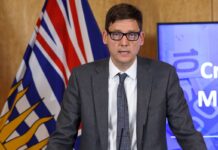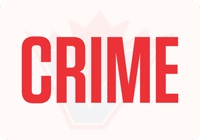
ON International Human Rights Day, Parliamentary Secretary for Sport and Multiculturalism Ravi Kahlon released a report with 25 recommendations for establishing the new B.C. human rights commission.
The recommendations come after an eight-week public engagement that resulted in thousands of site visits, hundreds of submissions and over 80 meetings with British Columbians.
The report outlines recommendations in five categories, including the commission’s creation, purpose, functions, powers and early priorities. Additional recommendations related to the Human Rights Tribunal, the Human Rights Clinic and the Ministry of Attorney General are included.
“British Columbians have shared their stories, their insights and their ideas on how a new human rights commission can best serve the people of our province,” said Kahlon. “More than ever before, it’s clear there is a critical need for a new commission to help reduce discrimination and dismantle the intersecting systems of oppression in our society. The 25 recommendations I have put forward to the Attorney General are informed by the feedback I received and I extend my deep gratitude to everyone who participated in this important process.”
The report, presented to Attorney General David Eby, recommends a human rights commission that functions independently from government by reporting directly to the legislature and holds government accountable through research, investigation, policy development and recommendation functions. A recurring theme throughout the public engagement was concern over the limited education on human rights, especially in professional environments. To that end, the report recommends that the new commission’s primary function be to create social change through education, in both the public and private sectors.
The report further recommends that the commission be led by one appointed commissioner, and supported by a staff, a human rights advisory council, working groups, and community partnerships, while guided by three early priorities:
- To collaborate and consult with Indigenous groups to develop commission policies and practices that honour the principles set out in the United Nations Declaration on the Rights of Indigenous Peoples (UNDRIP);
- To take on the study of gender as an identity requirement in public documents and make recommendations on its necessity or where it should be eliminated; and
- To examine the issue of foreign credentials and instances of discrimination against immigrants and other newcomers to the province.
“No jurisdiction is immune from discrimination,” said Eby. “That’s why the creation of a new human rights commission in British Columbia has been an early priority for our government. I will review the recommendations put forward by Parliamentary Secretary Kahlon and look forward to presenting the report to my cabinet colleagues.”
The government also officially proclaimed December 10 as Human Rights Day in British Columbia to mark the unanimous adoption of the Universal Declaration of Human Rights by the United Nations General Assembly in 1948. The declaration set out fundamental rights and freedoms for all people, including equality, life, liberty and security of person.
Over the next several days, Eby will meet with federal, provincial and territorial counterparts to discuss key human-rights priorities for Canada, including the role of governments in ensuring that Canada complies with its international human rights obligations. This is the first time in 30 years that all ministers responsible for human rights in Canada will meet to discuss this topic.
Quick Facts:
- The human rights commission public engagement period was from September 20–November 17, 2017, and resulted in 531 online comments, 13,253 site visits, 70 written submissions, and over 80 in-person or telephone meetings.
- Two Indigenous workshops were held that included a total of 12 organizations.
- B.C. is the only province in Canada without a human rights commission.
- B.C.’s previous human rights commission was dismantled.











